
Breathtaking new architecture studio could be the future of Toronto offices
Even in Toronto's return to relative normal, employers are struggling to lure their workers back to in-person office environments. However, one company thinks it has found the solution, opening a design studio of the future that designers hope will boost in-person work attendance back above the 80 per cent threshold.
Architecture and design firm BDP Quadrangle has moved into its new digs in a two-level, 40,000-square-foot studio perched high above Front and Spadina in the recently-completed office tower at The Well.
Despite just opening in February, the space is already half-occupied, and the firm hopes that the creative workspaces, innovative perks, and other features will help reignite employees' desire to attend in person.
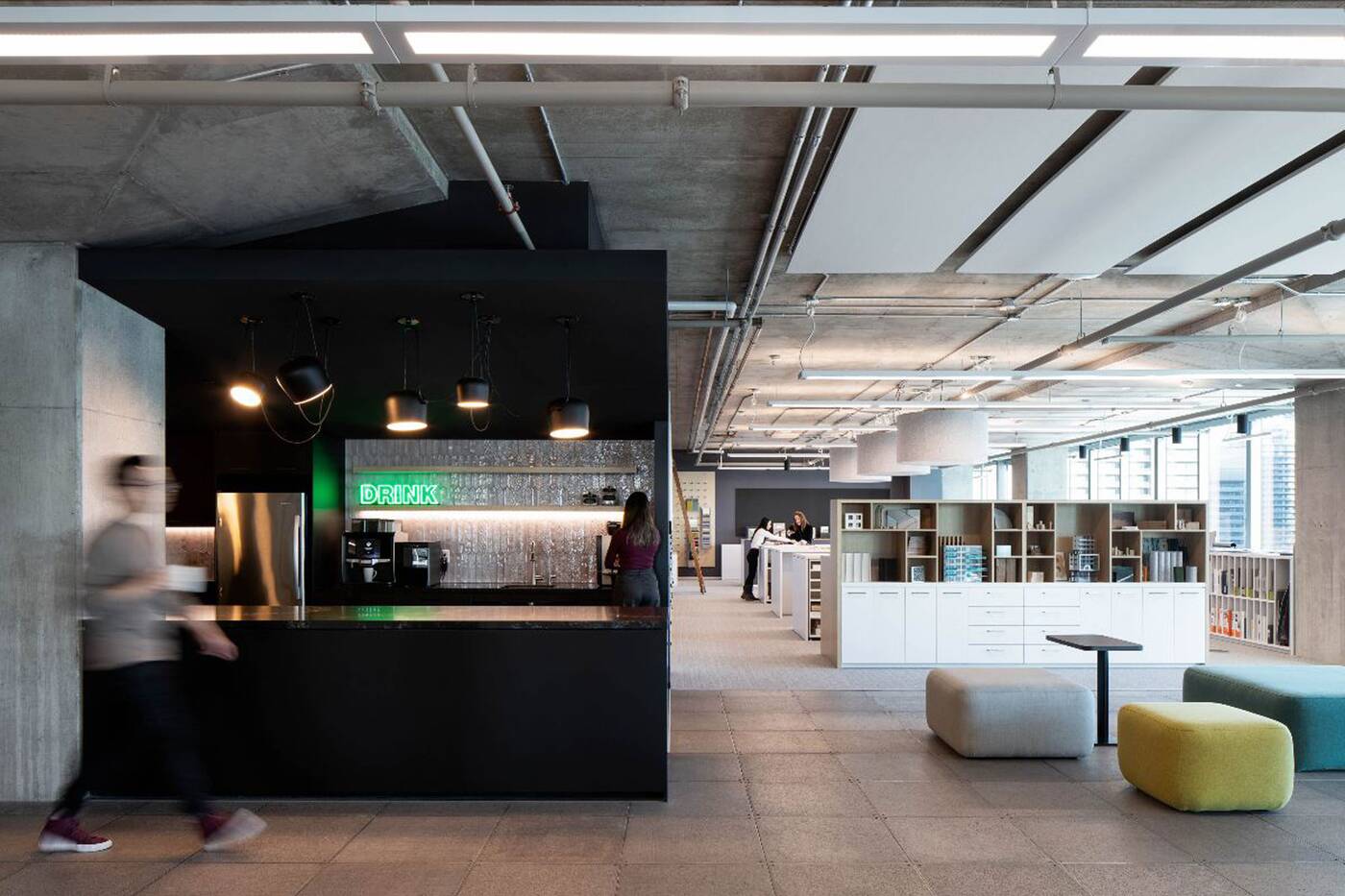
Caroline Robbie, Principal at BDP Quadrangle, admits, "We're not going to pretend like we have all the answers, or that everything will work right away," calling the new studio "an exercise in innovation, discovery and experimentation — with the goal of using our learnings to create better spaces for our clients."
She argues, "Instead of trying to get back to how things used to be, why don't we use this opportunity to create something new and better?"
BDP Quadrangle Associate and lead Interior Designer, Andrea McCann, says the new workspace was designed "with collaboration, flexibility, adaptability and wellness top of mind. We understand it needs to be a meaningful space that people want to come back to, because it inspires and energizes."
The space's location in the massive complex known as The Well allowed designers to piggyback on the amenities of the self-contained neighbourhood, including ample food options that allowed the firm to nix plans to cater meals to employees.
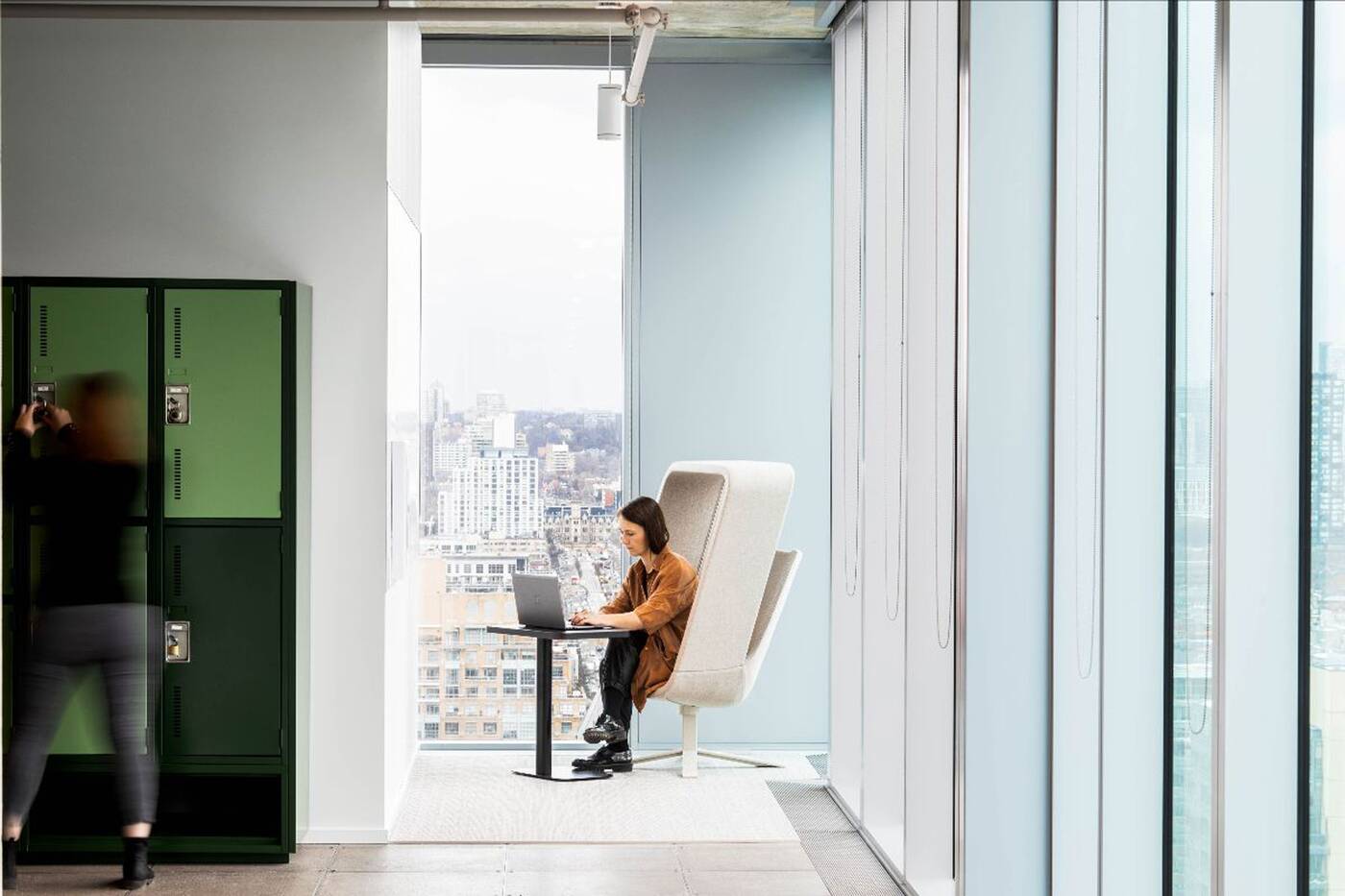
A massive semi-enclosed retail galleria known as The Spine, which carves through the complex, was designed by BDP, offering workers and residents at The Well a wide range of shopping and dining options.
"It's very exciting for us to have The Well as the backdrop of our new studio," said Robbie.
Areas within the studio space itself are designed as workplace 'neighbourhoods' to promote collaboration and inclusivity through core democratic principles: no one owns a window, a view, natural light, or a specific space.
This allows for a free flow of people and ideas in naturally-lit spaces that BDP believes will improve both wellness and productivity.
These neighbourhoods were first conceived as spaces for employees to work out of, however, the idea has since evolved into what designers call a 'nest' structure, defined by spaces corresponding with specific types of work, placed in proximity to associated departments as a means to foster interconnectivity.
McCann says that "Designing for flexibility allowed this organic change to happen," adding, "We don't want to be overly prescriptive in how space is used. People should be able to decide what works best for them."
This interconnected design extends beyond the physical space, such as BDP's experimentation with shared events calendar on an internal 'intranet' network in conjunction with cloud-based office scheduling software.
One of the standout spaces designed to draw workers into the physical studio is known as The Oasis, a relaxation space taking advantage of the best views in the office. Perched on the 20th and 21st floors of the 35-storey office tower, it's the type of showpiece that would typically be reserved for company executives.
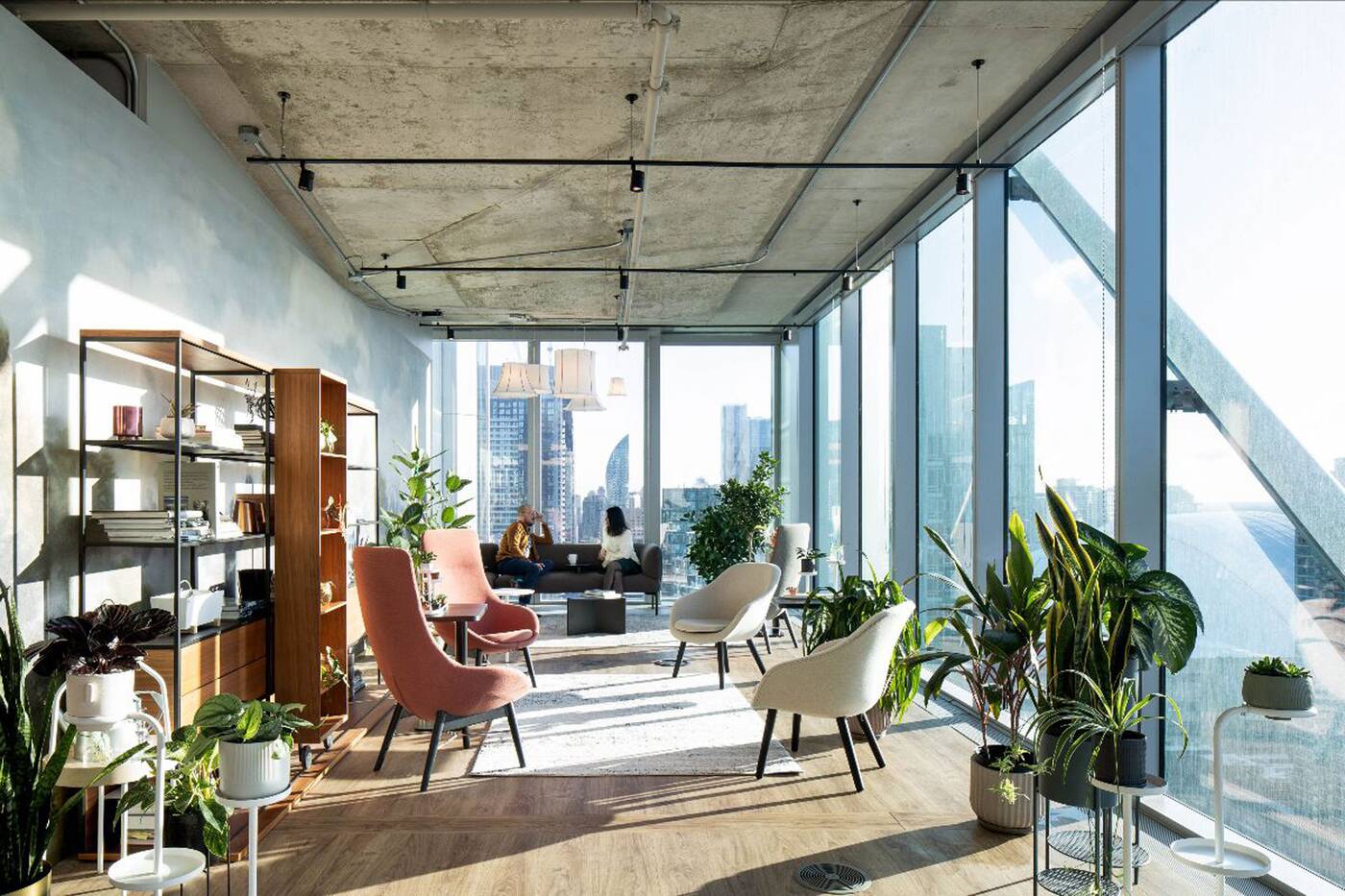
"To create a truly impactful third space, we need options for people to recalibrate, reflect, and switch off, without being surrounded by noise and activity. We strategically designed the Oasis quiet zone to overlook the cityscape to inspire and reinvigorate," said McCann.
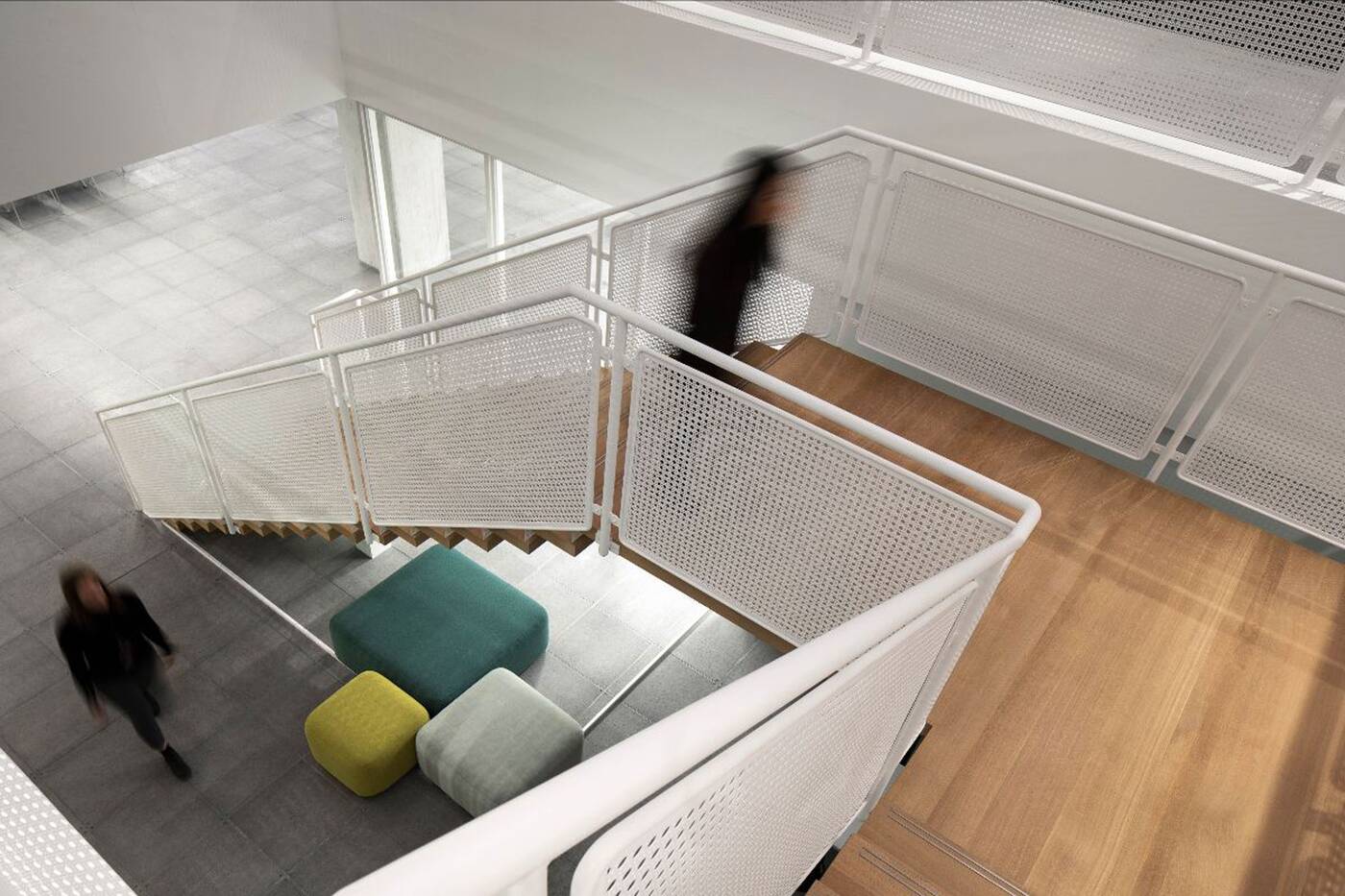
Contrasting the bright airy Oasis space, an area of the studio known as the Black Box offers a distraction-free zone intentionally designed in a minimalist style. "It's a box where ideas are made, self-contained within the hub of activity," said McCann.
"We intentionally designed this space to be simple. And while other parts of the office are full of natural light, windows and breathtaking views, we kept the Black Box as a visually quiet space to allow high profile meetings to feel focused and purposeful."
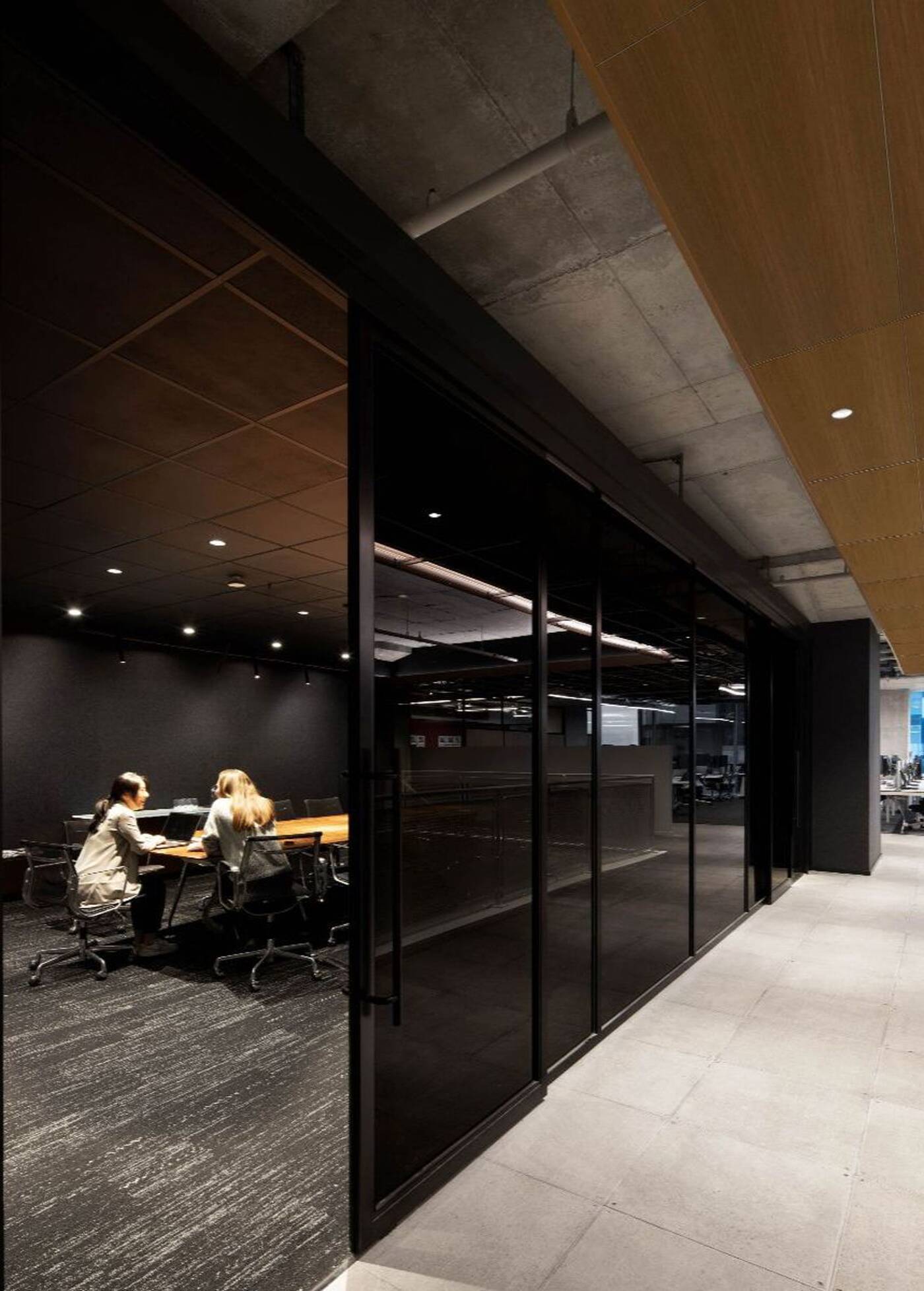
A space dubbed the Back Alley meets in the middle of these light and dark-themed spaces, providing a neon-lit environment described as "a natural collision point for ideas from different teams."
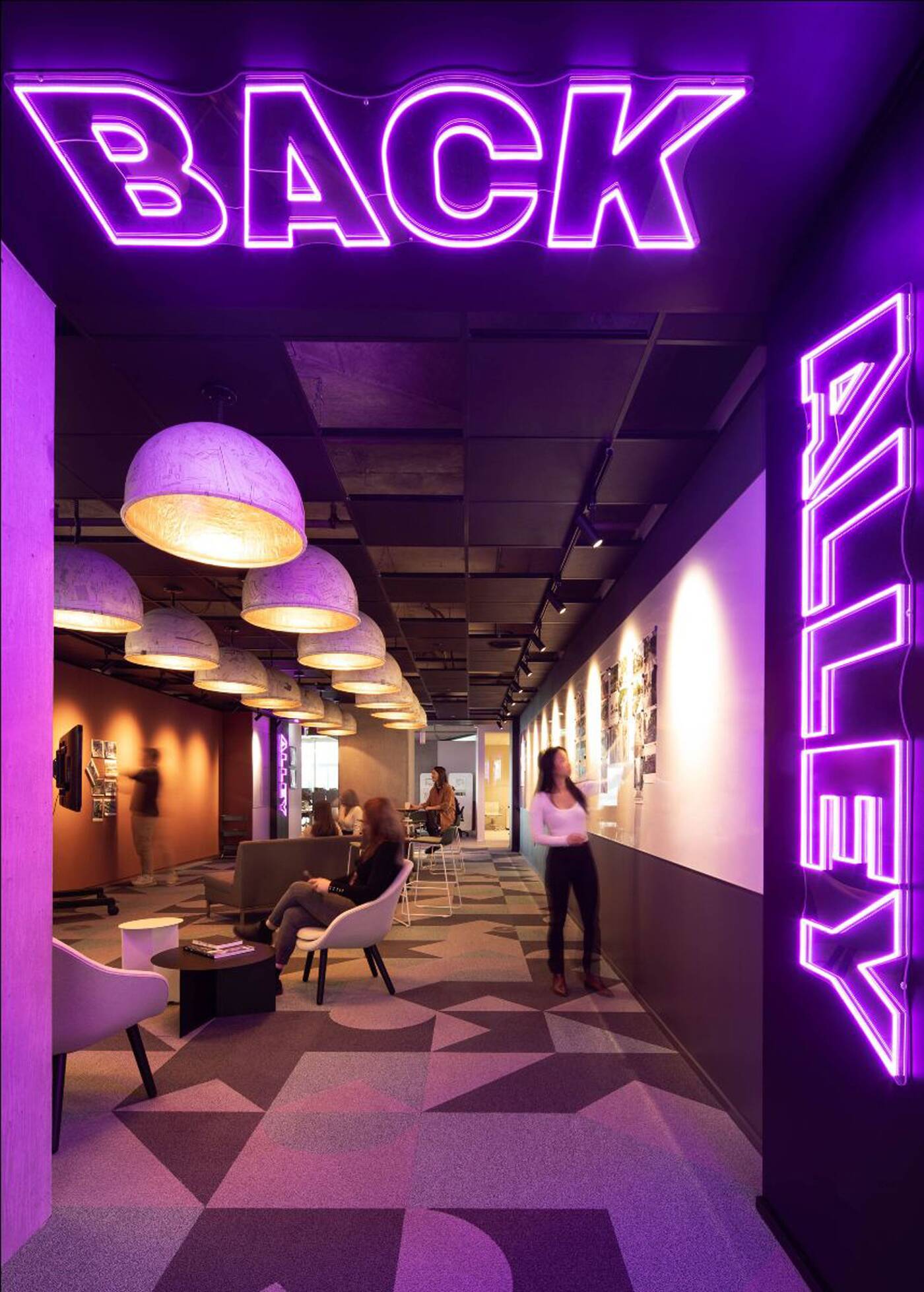
Beyond the space's apparent physical attributes, the studio was designed with sustainability in mind and is currently awaiting its WELL Platinum certification, a step towards BDP's goal of reaching net carbon-neutral status by 2025 or sooner.
Adrien Williams
Latest Videos
Latest Videos
Join the conversation Load comments







